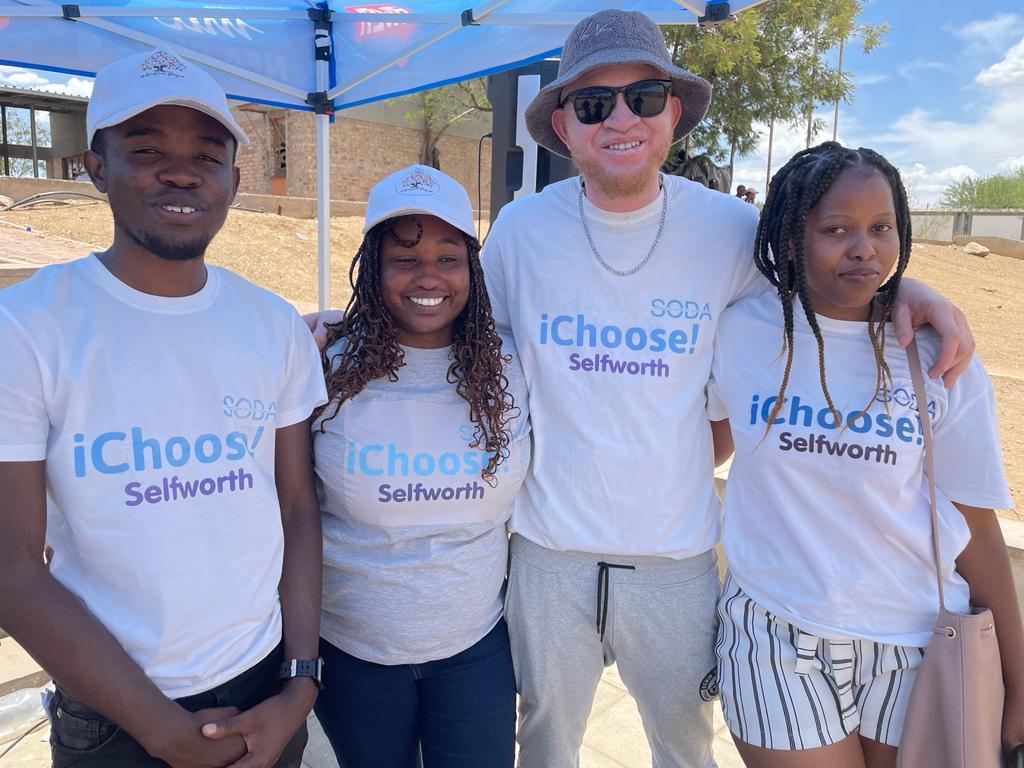We Care project aims to empower youth in schools
Wetumwene ShikageSeeking to groom bright-minded leaders
The project was started with the aim of having both boy and girl clubs to be part of a Life Skills programme. Sanitary pad drop-boxes at high schools in the Khomas, //Karas, Oshikoto and Hardap regions have been initiated by We Care.
Since its inception, the We Care project has successfully collected over 5 000 sanitary pads. This is with a reach of about 60% per project school. Further, 15 sessions with over 3 000 reached of the boy child and the male engagements on school grounds have been reached. The project was essentially started through an understanding that boys at school sent a signal to girls that “we care about you”.
Project coordinator Sidney Boois explained that the boy and girl clubs started at schools where Life Skills teachers reached out to the project. Ella du Plessis Secondary School was the first interested and through the great network of teachers, other schools joined to be part of the project.
Currently, the project has 11 schools involved from four regions and would like to expand.
Peer round table talks among boys and girls are held monthly at schools to educate youth on pressing issues and local experiences. The youth meet to discuss 16 leadership values which include choices, responsibility and self-worth. The We Care programme provides sanitary pad drop-off boxes by boys clubs and monthly school talk shows by both boys and girls clubs.
Furthermore, as part of value internalisation among both the boy child and girl child, the programme facilitates interactive dialogues that are geared towards character-building and the development of social skills. This is done as an instrument to defuse, amongst others, gender-based violence and substance abuse at a tender age and further develop interpersonal skills within the school-going youth and community.
A press release by Boois stated that the rising incidences of bullying at every level of society and more so on school grounds is an issue of grave concern, which is worrisome as the youth suggest it is a vicious cycle. This has led to a realisation of starting urgent talks at schools through the Life Skills programmes or classes. Boois said the situation at hand requires a sense of urgency at all levels and talks about better choices, discussions among peers on values such as understanding your self-worth and respect of others as well to shape a better future for all.
Another phase of the We Care project was launched on 13 November at Katutura Youth Complex. This launch was the introduction of the youth talk show consisting of panellists and audience both the school-going youth and out-of-school youth. Topics discussed were on choices and self-worth to address, among others, gender-based violence and substance abuse.
Challenges
Boois shared that there are a few challenges faced which hinder the steady progress of the project and its ultimate goal. Youth would like to become interns through this project and no facilities are readily available to accommodate them. “We would like to set up a wellness centre, recreation centre and an information centre to be user friendly for the youth. The absence of this seems to limit services to empower the youth and strengthen them. We would essentially like to empower interns who are employable to work at different companies,” he said.
He urged potential partners to get on board and support the youth through this project and allow the youth to flourish. “Partners and corporate companies that can provide temporal facilities to this wonderful group of youth, please feel free to invest and have a project which grooms future leaders,” he said.





Comments
My Zone
No comments have been left on this article